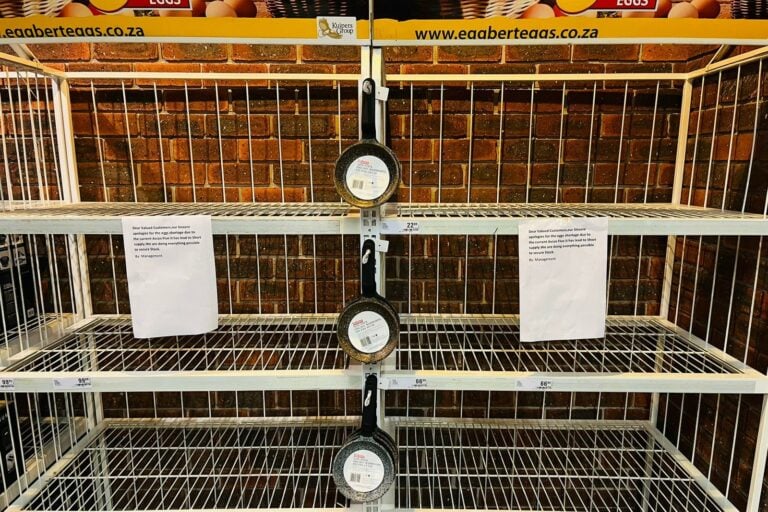November 26, 2025 | 03:39 GMT +7
November 26, 2025 | 03:39 GMT +7
Hotline: 0913.378.918
November 26, 2025 | 03:39 GMT +7
Hotline: 0913.378.918
Meanwhile, producers warn of chicken meat shortages in the coming weeks.

Supermarkets in South Africa, including Checkers pictured here, have run out of eggs or are limiting the number of eggs that consumers can purchase. Photos: Taylor Armstrong
“Due to the shortage of eggs caused by the avian flu, we need to prioritise the use of available whole eggs that meet our standards of food safety and quality for Woolies products made with eggs,” noted Woolworths, an up-market retailer that currently sells half a dozen free-range eggs for R29.99 (US$1.54)
“As a temporary measure, we therefore have to limit whole egg purchases to 1 pack of 6 eggs per customer. We are working with our farmers to ensure regular supply returns as soon as possible,” the retailer added.
Retailer Pick n Pay, meanwhile, said it would limit purchases to 1 or 2 egg packs per customer, depending on the region, while Spar Group said it is exploring potentially importing eggs from neighbouring southern African countries.
It is reported that the widespread culling of chickens in the commercial poultry layer and broiler sectors accounts for 20-30% of the country’s total chicken stock.
Last month, poultry producer Quantum Foods said nearly 2 million chickens worth R106 million (US$5.63 m) had been killed by a bird flu outbreak – 1.5 million of its laying and breeding birds have been lost in the current bird flu outbreak following 420,000 laying chickens lost during an earlier wave of infections in April. Meanwhile, RCL Foods said that its poultry unit Rainbow, which is one of South Africa’s largest chicken producers, has culled 410,000 chickens due to the outbreak of avian flu.
“The outbreak has moved at a rapid pace, and the situation is constantly evolving. To date an estimated 410,000 birds have been culled, which has resulted in an estimated financial impact of R115 million (US$5.99 million),” RCL Foods reported.
(PW)

(VAN) Brazil's COP30 presidency pushed through a compromise climate deal on Saturday that would boost finance for poor nations coping with global warming but that omitted any mention of the fossil fuels driving it.

(VAN) Poultry farmers in the UK have been warned that they could face one of the worst winters yet for bird flu.

(VAN) Prices of main-crop paddy have risen sharply, with jasmine rice hitting 16,100 baht per tonne — the highest level in years.

(VAN) In Brazil, FAO unveiled a series of reports and initiatives showing how sustainable agrifood systems are a solution to the climate crisis.

(VAN) With names like neodymium and dysprosium, rare-earth elements sound exotic — and their perceived scarcity has only added to the mystique.

(VAN) In a new study published in Trends in Biotechnology, researchers used a gene-editing technology called CRISPR to increase a fungus's production efficiency and cut its production-related environmental impact by as much as 61%- all without adding any foreign DNA.

(VAN) A top official in Beijing’s Cop delegation says China is committed to clean energy – but US’s absence is a problem.